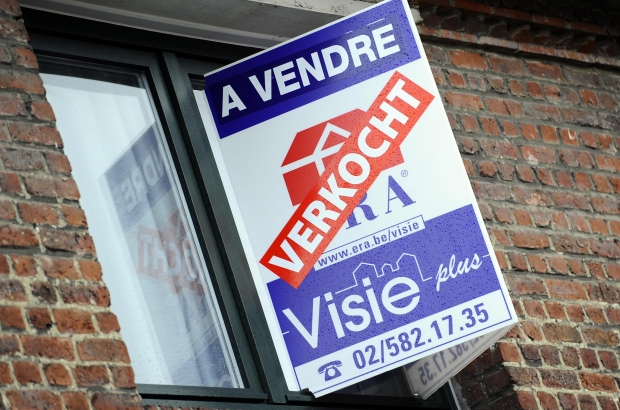- Daily & Weekly newsletters
- Buy & download The Bulletin
- Comment on our articles
Belgian house prices will continue to rise as property boom endures
The Belgian real estate market boom of 2021 has led to surge in house prices which is set to continue into this year, according to a report by the National Bank of Belgium. “Residential property price growth reached 8.5% in the first three quarters of 2021 compared to the same period in 2020,” the bank’s 2021 report. “This is actually the sharpest increase since 2007." This rise in prices has affected all regions of the country and all types of properties; town houses, villas and apartments.
This rebound in real estate prices naturally had an impact on the average amount borrowed for the purchase of a home, which rose from €135,100 at the end of 2020 to €144,300 in November 2021.
But, as a logical consequence, the surge in prices has also led to a significant increase in household real estate assets, estimated at nearly €1,800 billion at the end of the third quarter of 2021.
Among the main elements that can explain the rise in real estate prices is demography. The population is growing, and so is the need for housing. The still extremely low interest rates are a second element. The National Bank noted that "the rate on 10-year mortgages remained below 1.40% throughout the year".
On the issue of low interest rates and their impact on house prices, National Bank Governor Pierre Wunsch acknowledged responsibility for the monetary policy pursued for years by the European Central Bank.
"As interest rates are very low," he explained, "there are people who buy houses or apartments to have a minimum return [Editor's note: the gross return on rented real estate can reach 3-4% while regulated savings accounts most often offer 0.11% per year]. Partly the price increases are motivated by that investment concern."
"There is also a surge in house prices that is partly the result of our monetary policy,” Wunsch added. “You have to pay attention to that. I think that's one of the reasons why keeping interest rates very low for a very long time is not a good idea. It's starting to have negative effects, especially on the real estate market."
Inflation should also be considered, he added. "The price of new constructions has been pushed up by the increase in the costs of building materials," Wunsch explained. “The ABEX index recorded an increase of 4.6% in 2021, the most significant development in 13 years, more than one percentage point higher than the average of the previous three years."
With this considerable rise in prices, households are now finding it more difficult to buy their first home. The National Bank cautiously points this out by indicating that the surge in real estate prices has "somewhat degraded the accessibility to property".
To quantify this deterioration, it estimates the share of households' net disposable income that must be devoted to the repayment of a new mortgage loan amounted to 24.9% in 2021. On average, therefore, a quarter of household net income is used to repay the mortgage loan.
That's a lot but still quite far from the record of 2008, just before the outbreak of the global financial crisis. Households then spent an average of 28.7% of their net income on the repayment of their mortgage.
Pierre Wunsch admitted that it is likely that real estate costs will continue to rise, and that the ‘scarcity factor’ will have a big influence on this.
"Today, real estate prices are rising because there is scarcity. If you want to live in the centre of Brussels, you will pay more than the cost of building an apartment or house in Brussels."
It means access to housing could become more complicated for many individuals and families. "We have a real concern in this regard," said Pierre Wunsch. “If at some point we don't build more housing, we won't have a safety valve."



















